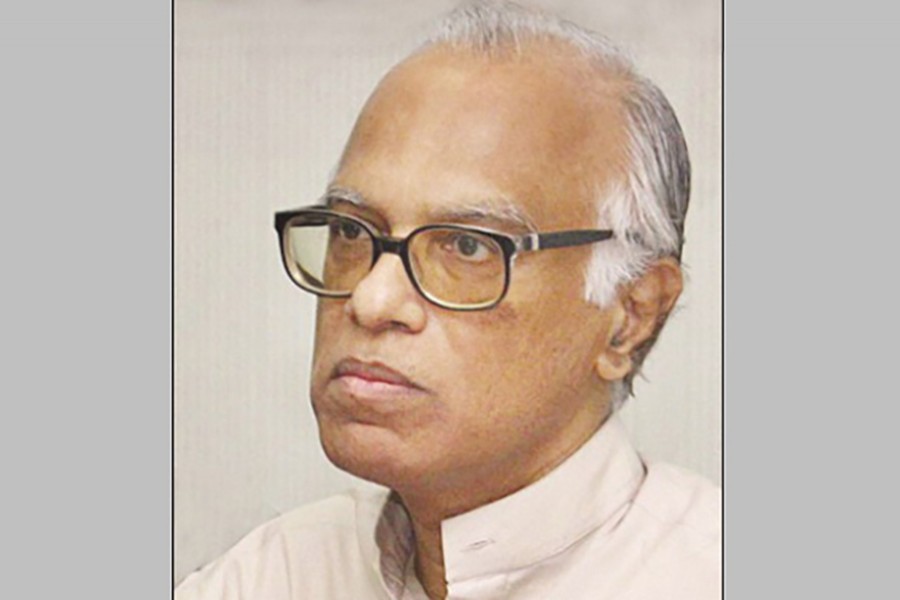Eminent economist Professor Wahiduddin Mahmud Thursday said that despite exponential growth of non-farm activities in rural economy, there is still a problem of scaling up small and medium enterprises (SMEs) due to lack of access to finance.
Non-farm activities in rural areas by the farmers have increased 7-10 per cent over the past 26 years as it was reflected in the economic census of 2013, he said, addressing a workshop in the capital as a special guest.
He also pointed out that those who identify themselves as real farmers were actually involved in multiple sources of income or multiple occupations, contributing to the country's economy.
"Many small trading and business establishments have been done with the help of microcredit. But scaling up of these small units is a problem, creating a missing middle," he added.
Planning Minister AHM Mustafa Kamal was present as the chief guest of the workshop titled "Draft Questionnaire on Statistical Business Register" held at Bangladesh Bureau of Statistics (BBS) auditorium.
"The economic households (HHs) or non-farm economic activities inside the houses are 90 per cent in rural areas. About 20 per cent of the farmers work in economic HHs while 80 per cent of them have business, trade or service providing centres in permanent establishments," said Prof Mahmud.
The number and growth of employment in these permanent establishments is more in rural areas than in urban areas. The growth was 7.0 per cent in rural and 6.0 per cent in urban areas between 2001 and 2013, he said.
He explained that there was a missing middle both in credit market and in case of the size of businesses or industrial units.
He said micro finance institutions were providing loans to small businesses and banks were providing loans to big businesses. There are some small industries and big industries, but no medium industries which are the main strength of the economy.
Neither Midas nor SME Foundation provided these economic units with loans as part of their duty, said the economist.
Referring to the economic census 2013, he said only 4.0-5.0 per cent of the agricultural labour force work in an industry employing 50-150 people, which is the lowest. This is the main missing middle not having their own capital or access to loans.
Regarding the proposed business register, he identified some shortfalls of the economic census and said that a vast project like developing a business register is usually undertaken by the developed countries.
That's why Bangladesh should move slowly and carefully, and start with the companies eligible for payment of tax and VAT.
Meanwhile, the planning minister said the BBS will merge the economic census and business register, and update it every two years primarily. Later, it will be updated every year.
He said the country has a huge ADP size, but the return was not up to the mark due to lack of investment in industrial sector. So, the investment scenario is not genuine, he added.
NBR chairman Nojibur Rahman, another special guest of the event, said the information for business register provided by the economic units should be accurate. But the data and information should be collected from Bangladesh Bank too and cross-checked to see what kind of information businesses were giving to the central bank. It was found that businesses have provided different information as per their convenience, he said.
Chief coordinator of SDGs Abul Kalam Azad said there were many organisations and government agencies which do not provide the information they have. That's why the country lagged behind in business competitiveness ranking and information technology.
He said formation of the national committee on data management was still missing. The Prime Minister's Office has taken a decision to form the committee, he added.
Economic census 2013 project director Dilder Hossain said there was no updated information of businesses and industries. There were over 7.81 million economic units in 2013 which is projected to have reached 10 million now.


